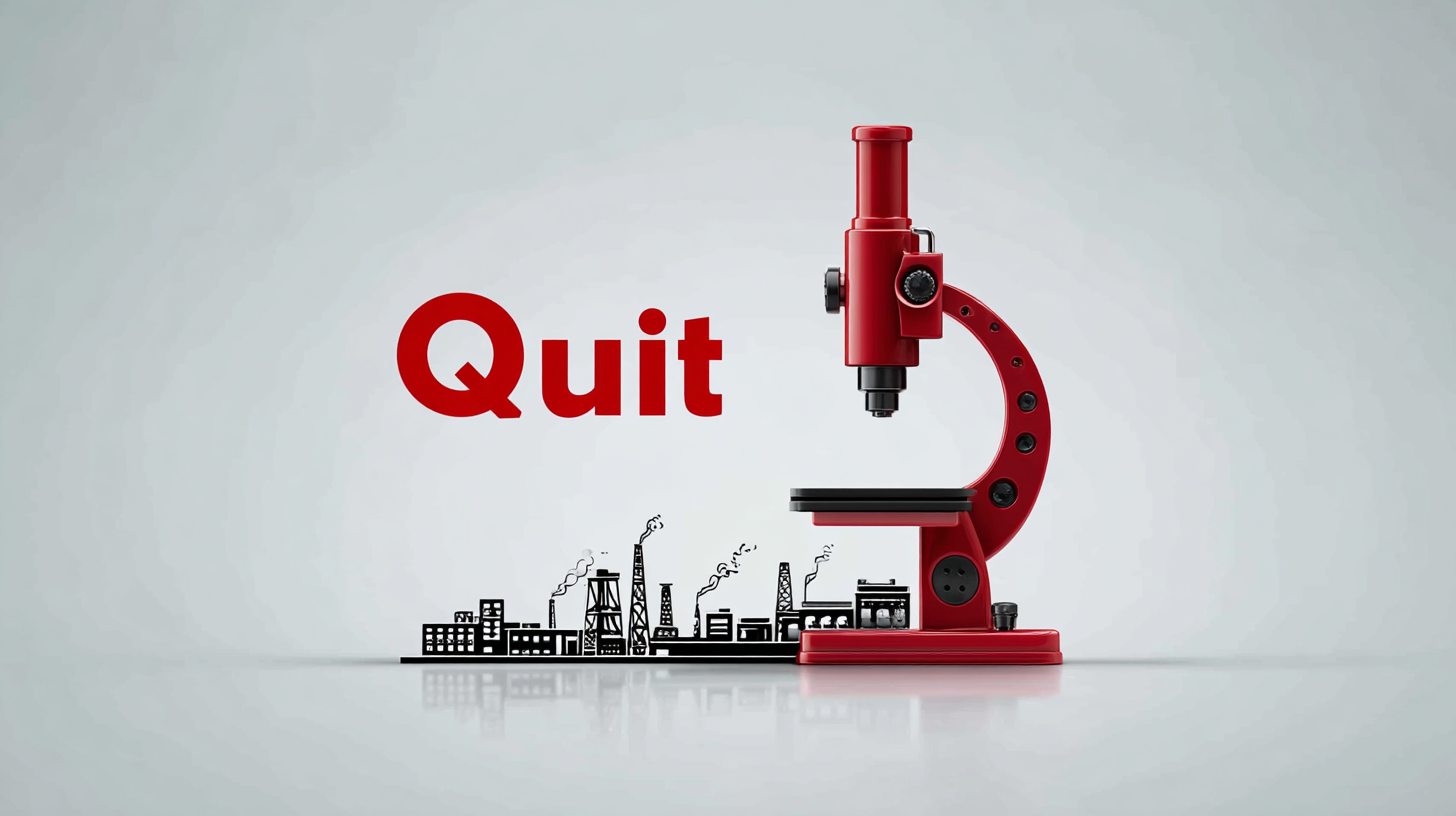
Selecting Top Quality Manufacturers for Your Business Success
In today's highly competitive global market, selecting top-quality manufacturers is crucial for the success of any business, particularly in the realm of international trade. According to a recent report by the International Trade Centre, over 80% of small and medium-sized enterprises (SMEs) engaged in import-export activities experience significant challenges in sourcing reliable manufacturers. The quality of goods produced by manufacturers not only affects a company's reputation but also its bottom line, as subpar products can lead to increased return rates, customer dissatisfaction, and ultimately, loss of market share.

Additionally, with stringent international standards and certification requirements, businesses must prioritize manufacturers who not only comply with these regulations but also demonstrate a commitment to quality assurance. By focusing on reputable manufacturers, companies can enhance their competitive edge while ensuring sustainable growth in an increasingly interconnected economy.
Identifying Key Characteristics of Top-Quality Manufacturers in China
 When selecting top-quality manufacturers in China, it's essential to identify key characteristics that differentiate the best from the rest. A recent analysis highlights that the facial recognition sector in China has rapidly advanced, with 3D facial recognition technology now leading the global market. A staggering 500,000 facial recognition occurrences are recorded monthly, signifying the technology's integration into various sectors including manufacturing and access control. This is indicative of a broader trend where manufacturers leverage advanced biometric technologies to enhance security and operational efficiency.
When selecting top-quality manufacturers in China, it's essential to identify key characteristics that differentiate the best from the rest. A recent analysis highlights that the facial recognition sector in China has rapidly advanced, with 3D facial recognition technology now leading the global market. A staggering 500,000 facial recognition occurrences are recorded monthly, signifying the technology's integration into various sectors including manufacturing and access control. This is indicative of a broader trend where manufacturers leverage advanced biometric technologies to enhance security and operational efficiency.
In addition to technological prowess, top manufacturers prioritize compliance with evolving regulatory standards, particularly concerning the protection of biometric data. As the field expands, legal frameworks surrounding the collection and usage of such data are being strengthened, fostering an environment of trust and reliability. The emphasis on biometric data protection is crucial, as manufacturers must navigate the fine line between innovation and ethical considerations, ensuring that their practices align with global privacy standards while still driving productivity and competitive advantage in this rapidly evolving landscape.
The Impact of China’s Manufacturing Sector on Global Supply Chains
China’s manufacturing sector plays a pivotal role in shaping global supply chains, driving both innovation and efficiency across industries. As the world’s largest manufacturer, China produces a vast array of goods, from electronics to textiles, significantly lowering costs for businesses worldwide. The ability to source materials and products at competitive prices has attracted countless companies to rely heavily on Chinese manufacturers, creating an interdependent relationship between domestic markets and international supply chains.
However, this reliance comes with its own set of challenges. Fluctuations in production capabilities, labor costs, and geopolitical tensions can disrupt supply chains, highlighting the importance of selecting top-quality manufacturers. Businesses must carefully assess the reliability and stability of their Chinese partners, ensuring that they not only meet quality standards but also adhere to ethical production practices. Those that strategically select manufacturers will not only safeguard their supply chains but also position themselves favorably in the competitive landscape of the global market.
Selecting Top Quality Manufacturers for Your Business Success - The Impact of China’s Manufacturing Sector on Global Supply Chains
| Manufacturing Sector | Average Production Capacity (Units/Month) | Quality Compliance Rate (%) | Export Market Share (%) | Lead Time (Days) |
|---|---|---|---|---|
| Electronics | 500,000 | 98% | 25% | 30 |
| Textiles | 1,000,000 | 95% | 30% | 15 |
| Automotive Parts | 250,000 | 97% | 20% | 40 |
| Consumer Goods | 800,000 | 96% | 35% | 20 |
Analyzing Industry Standards: Certification and Compliance for Manufacturers
In the competitive landscape of modern manufacturing, adherence to industry standards has become paramount for ensuring product quality and safety. For manufacturers, achieving relevant certifications not only meets regulatory requirements but also instills confidence among consumers and partners. Industries such as food production, aerospace, and medical devices are particularly stringent, requiring compliance with specific standards to mitigate risks and enhance marketability.

The food-grade gold hydrocolloid market exemplifies the critical role of certification and compliance. As a key stabilizer, thickener, and emulsifier, its applications are valuable in creating gluten-free and vegan products. Similarly, the aerospace sector demands a multitude of certifications, reflecting its complex, technology-driven nature.
These compliance measures are not merely bureaucratic hurdles; they serve as essential benchmarks that manufacturers must navigate to position themselves effectively within their respective markets. By focusing on quality standards and compliance, manufacturers can align their operations with industry best practices, paving the way for sustained success.
Leveraging Advanced Technology and Innovation in Chinese Manufacturing
Leveraging advanced technology and innovation in Chinese manufacturing is crucial for businesses aiming to stay competitive in today's dynamic market. According to a McKinsey report, about 50% of manufacturers in China are investing in smart technologies as part of their growth strategies, with a focus on automation and data analytics. This shift not only enhances operational efficiency but also leads to significant cost reductions, making it an attractive option for businesses looking to optimize their supply chains.
Moreover, continuous innovation in areas such as artificial intelligence and the Internet of Things (IoT) is transforming the manufacturing landscape in China. A report by the World Economic Forum highlights that 80% of Chinese manufacturers are implementing IoT solutions to improve production capabilities and minimize downtime. This technological advancement enables manufacturers to respond swiftly to market changes and customer demands while maintaining high-quality standards, ultimately driving their business success in an increasingly globalized economy. Embracing these innovations is no longer optional but essential for companies seeking to thrive in the competitive manufacturing sector.
Assessing the Cost-Benefit of Sourcing from China: A Data-Driven Approach
In today's competitive landscape, the decision-making prowess of companies is paramount, particularly when evaluating the cost-benefit of sourcing from countries like China. According to Gartner, by 2026, 75% of Fortune 500 companies will adopt decision intelligence practices, which will include systematic documentation of decisions to facilitate subsequent analysis. This transition not only empowers companies to optimize their sourcing strategies but also underscores the role of data-driven approaches in enhancing operational resilience. With the pressures from evolving market conditions and unexpected disruptions, businesses must learn to navigate cost-cutting while fostering growth.
Additionally, the rise of procurement automation and artificial intelligence is reshaping the industry, driving efficiency and cost reduction. Solutions that incorporate autonomous procurement systems are becoming increasingly relevant. These systems leverage data aggregation and orchestration capabilities to streamline sourcing processes, thus enabling companies to make informed decisions regarding their supply chains. As businesses seek innovative strategies to lower costs, understanding these advancements in procurement automation is essential for maximizing profitability when sourcing internationally, especially from major manufacturing hubs.
Cost-Benefit Analysis of Sourcing from China vs. Local Manufacturers
This chart demonstrates the cost-benefit of sourcing manufacturing from China compared to local manufacturers. The data reflects average costs per unit, quality ratings, and lead times associated with each sourcing option.



